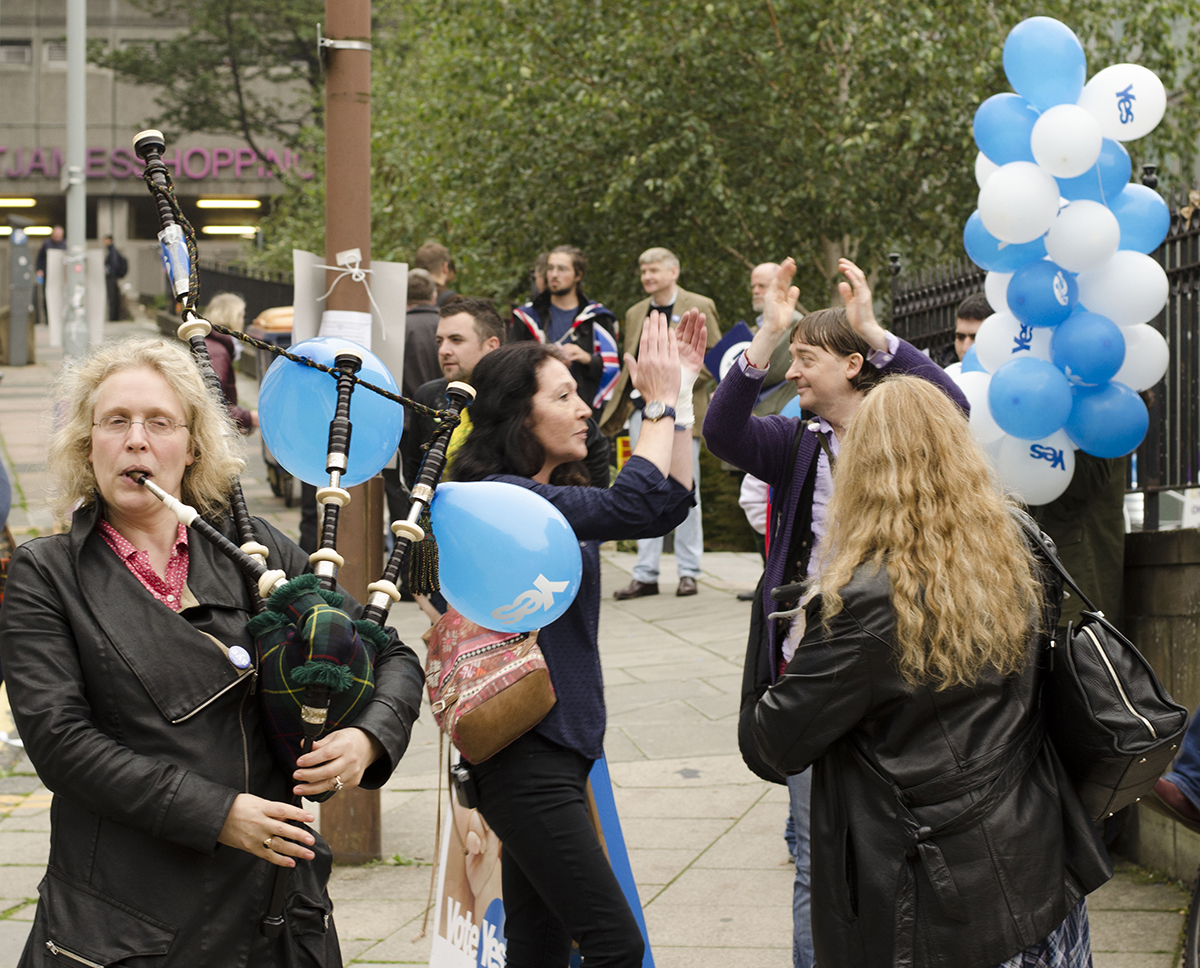“Yes” and “no” banners lined the streets of Edinburgh in the weeks before Scotland’s historic vote for independence from the United Kingdom.
At 3 a.m. on Sept. 19, the day after the election, University of Miami junior Michael Rosenberg, along with friends he has made while studying abroad, headed down to the Scottish Parliament Building. There, voters waving Scottish flags and singing Scottish songs awaited the results of one of Scotland’s first political referendums.
This referendum asked Scottish voters to decide whether Scotland, which has been a part of Great Britain for 307 years, should become an independent country. On Thursday, the “no” vote won. According to the latest BBC News poll, 55.3 percent voted “no,” while 44.7 percent voted “yes.”
Rosenberg, who is studying at the University of Edinburgh this fall, was excited to experience this historical moment.
“Scotland is paving the way for many other countries and shows that such referendums are possible,” he said. “When I fell asleep, I didn’t know if I was going to be waking up in a different country or not.”
If Scotland had seceded from the U.K., it would have impacted its economic, political and business sectors, according to Joaquin Roy, an international studies professor who specializes in the European Union.
Roy said this story of independence is not going away any time soon.
“It’s going to produce a certain peace you know for a while,” he said. “This is something that is not going to disappear. If someone thinks that this is the end of the story, those people, so-called experts, are wrong. The desire to have more autonomy is not going to disappear.”
UM junior Albert Liu has also been studying in Edinburgh this semester and during the election. He has seen people from both parties, and while the “yes” side seems devastated, the “no” side is “only relieved.”
“Honestly, Scotland may have avoided a lot of turmoil and struggle in the next decade by staying in the U.K.,” Liu said. “Scotland has a lot of devolved powers already, meaning they decide quite a lot from Edinburgh, so what they really lost was full parliamentary independence, but it’s not necessarily the worst outcome.”
Elyse Resnick, assistant director of the Study Abroad program, advises those who travel to Scotland. She said students who are living in Scotland during the election were “really blessed” to experience this opportunity.
“Just to see a community come together for a civic or even a religious purpose – it’s really special,” she said.
As an analyst, Roy agreed that students studying abroad experienced “hands-on an extraordinary process of democracy.”
As Rosenberg was on his way to the parliament building the night of the vote, he passed by a church where hundreds of candles were lit in prayer and support of the Scottish. Surrounding them were flags of other countries around the world, including Taiwan, that were also hoping for independence.
“This is one of the first legal situations where a region was going to split away and form a new country peacefully and diplomatically,” he said. “Although it didn’t happen, this referendum is giving hope to many nations across the world. This referendum for a potential country of only about 5 million has such a global impact and is the spark of future change to come.”
Despite the thousands of miles separating Miami from Scotland, Roy believes any student in today’s world should pay attention to what is happening throughout the globe, especially in Europe, and to what he believes is one of the most important allies of the United States – Great Britain.
“To remain ignorant about what is happening … the student that makes that decision is actually damaging himself or herself,” Roy said. “We cannot afford to be ignorant about what is going on in the rest of the world but most especially in the most important allies.”







